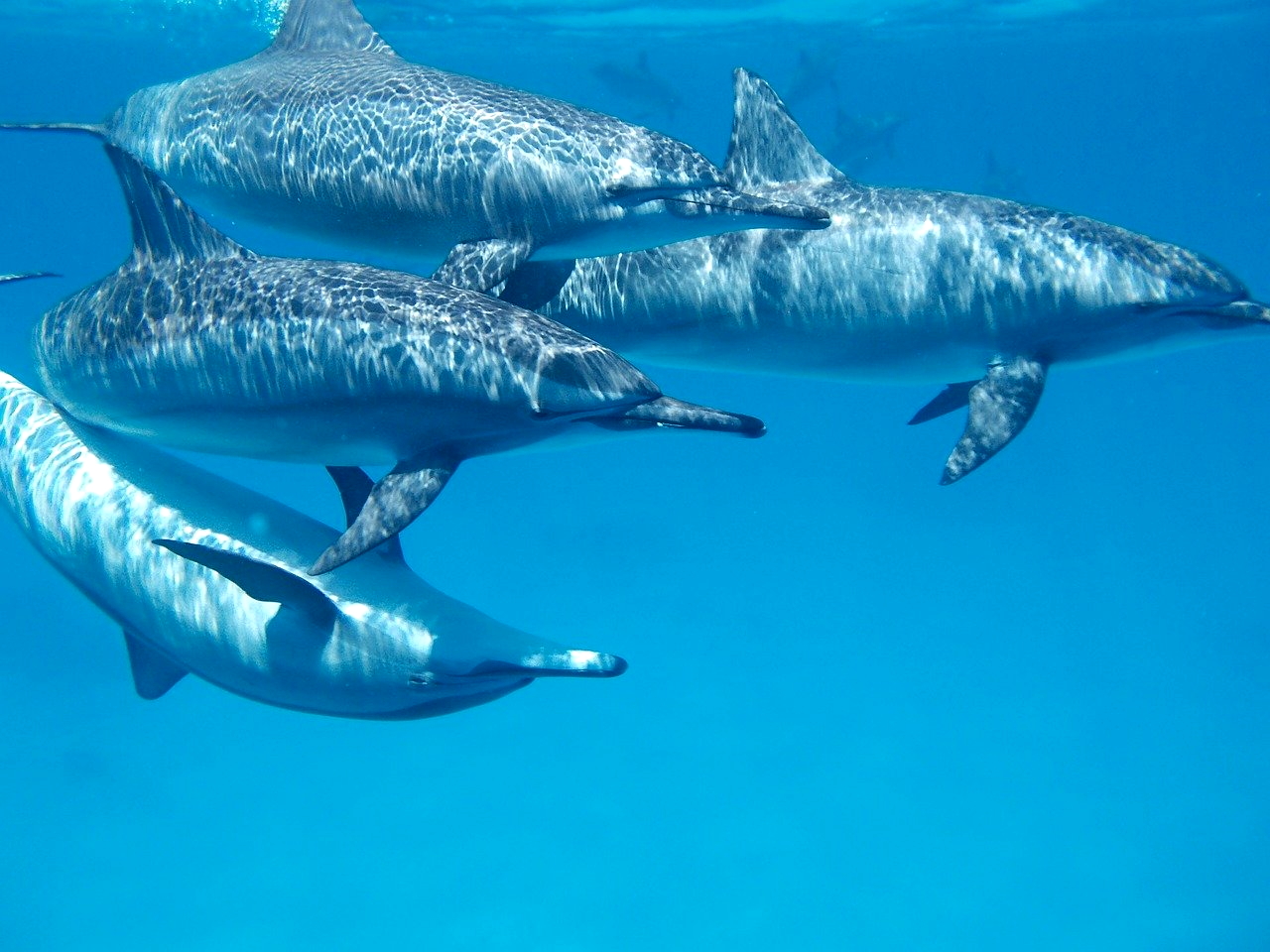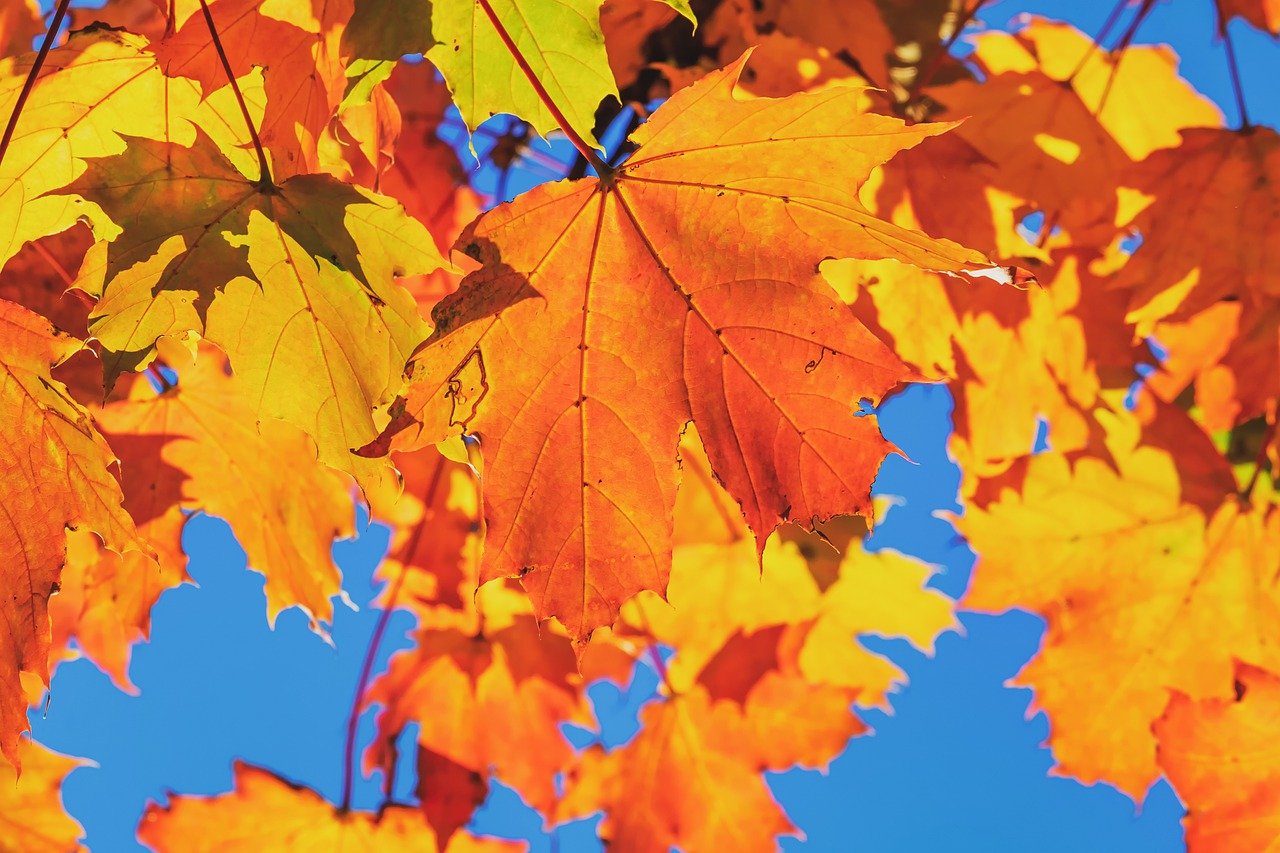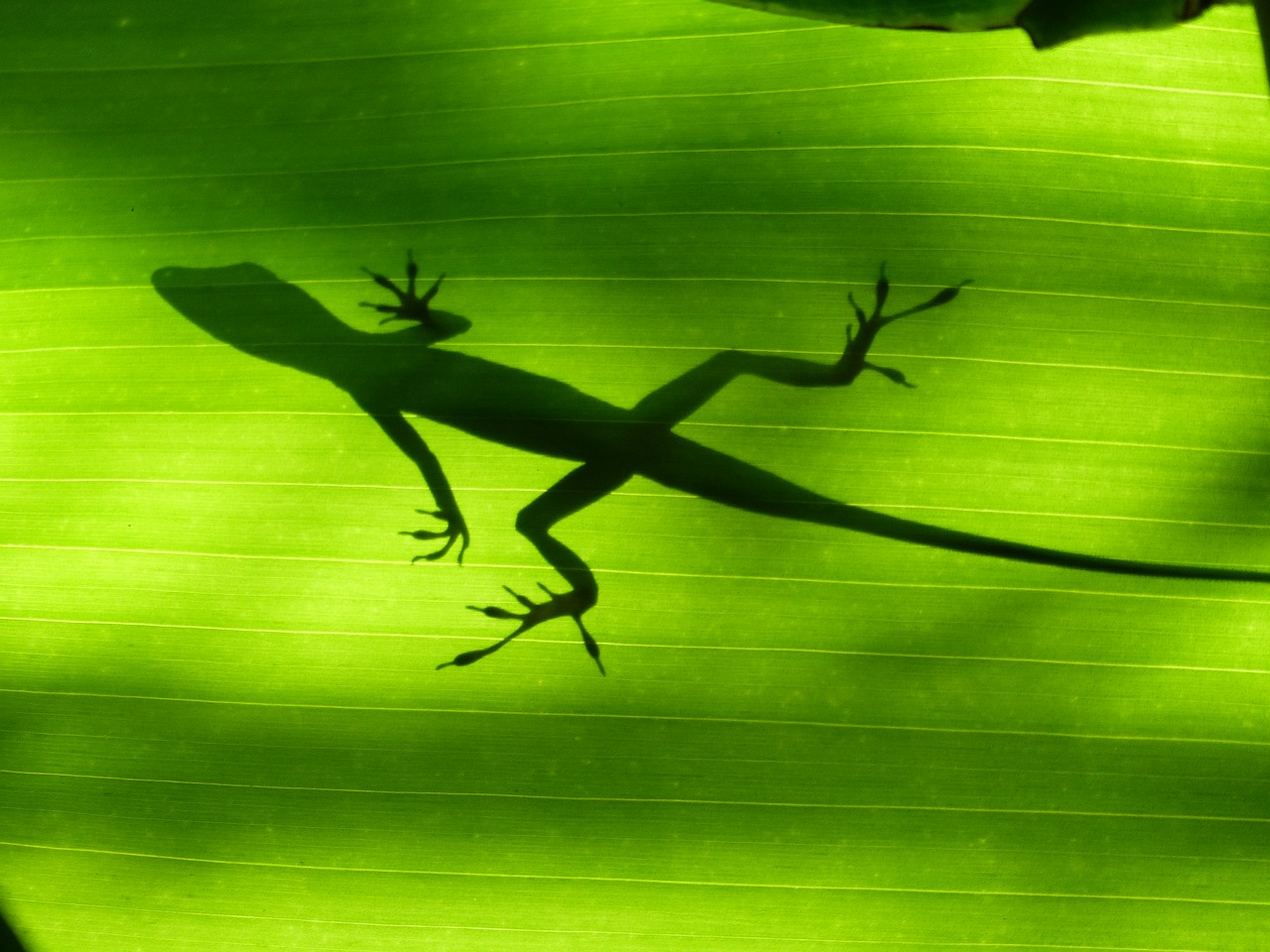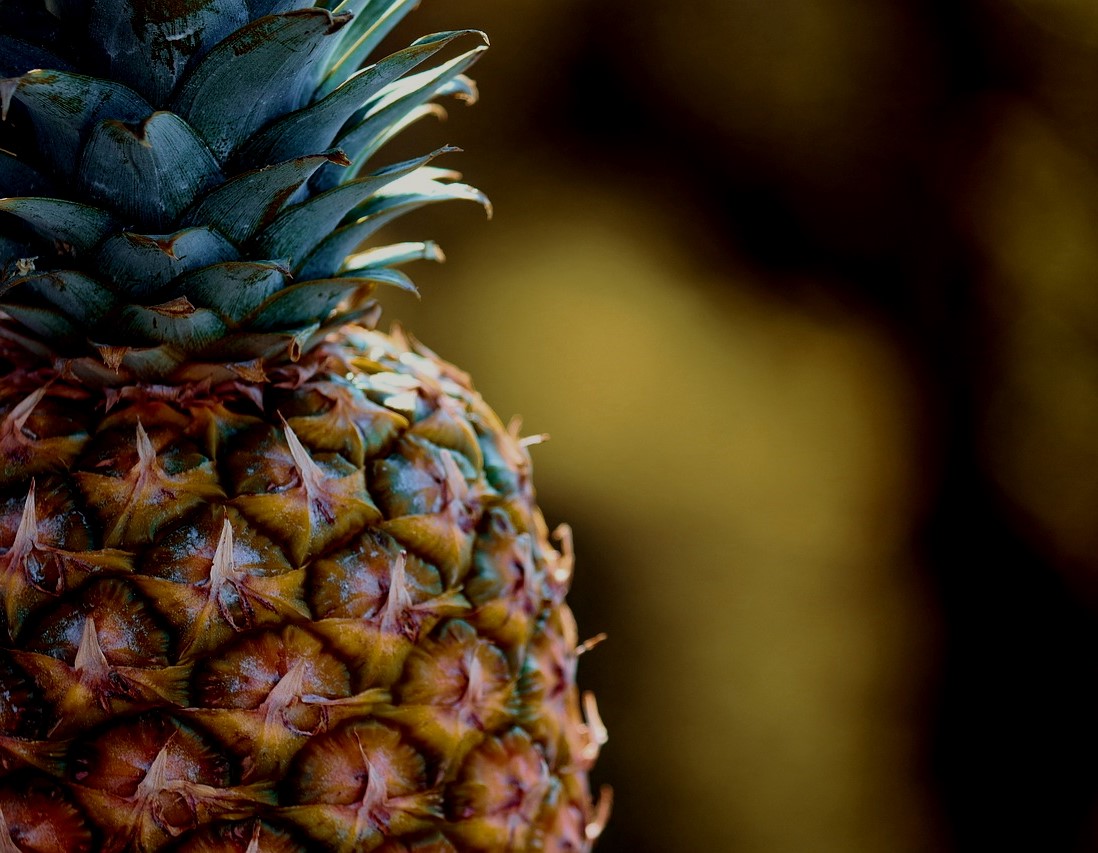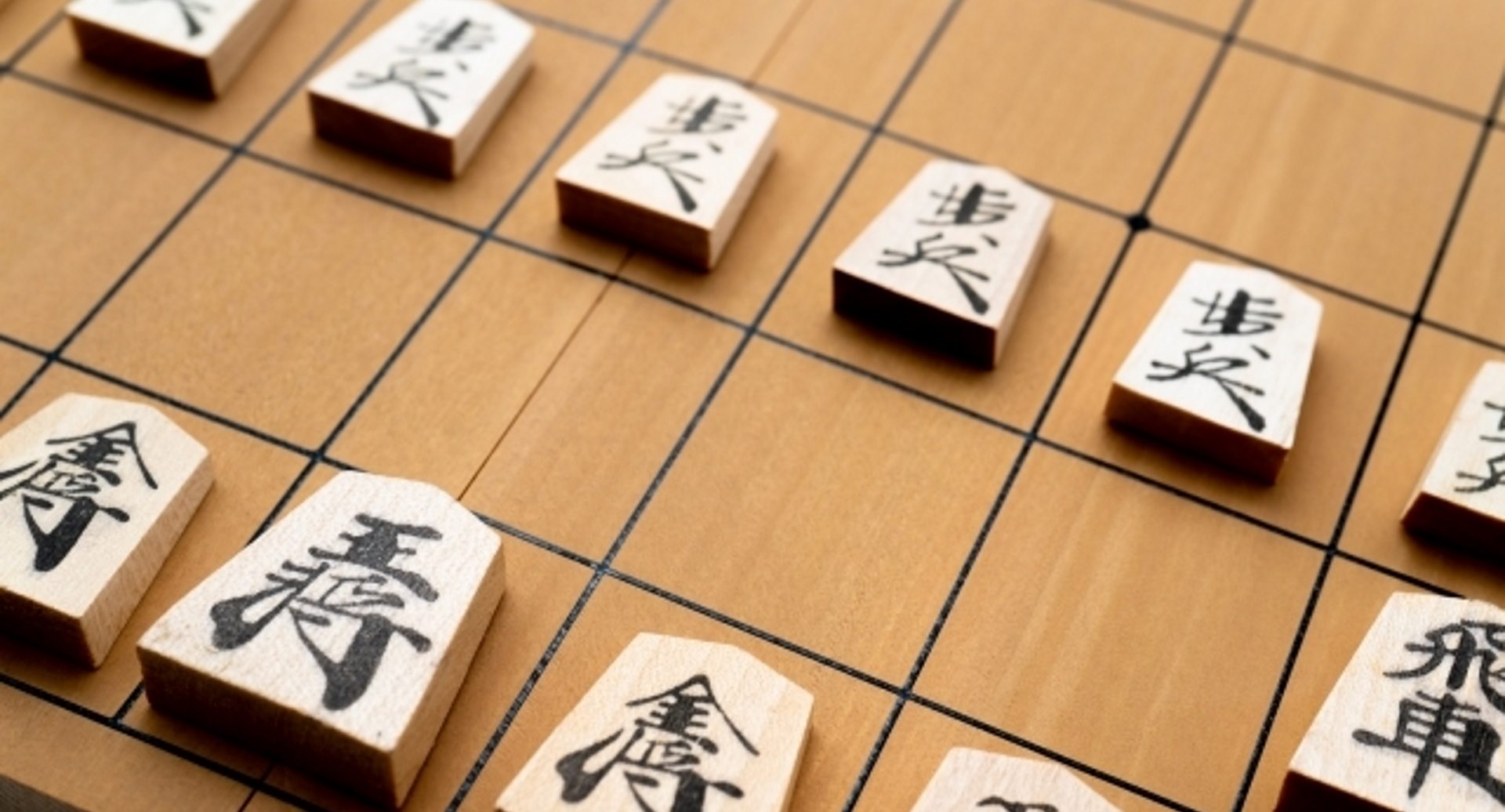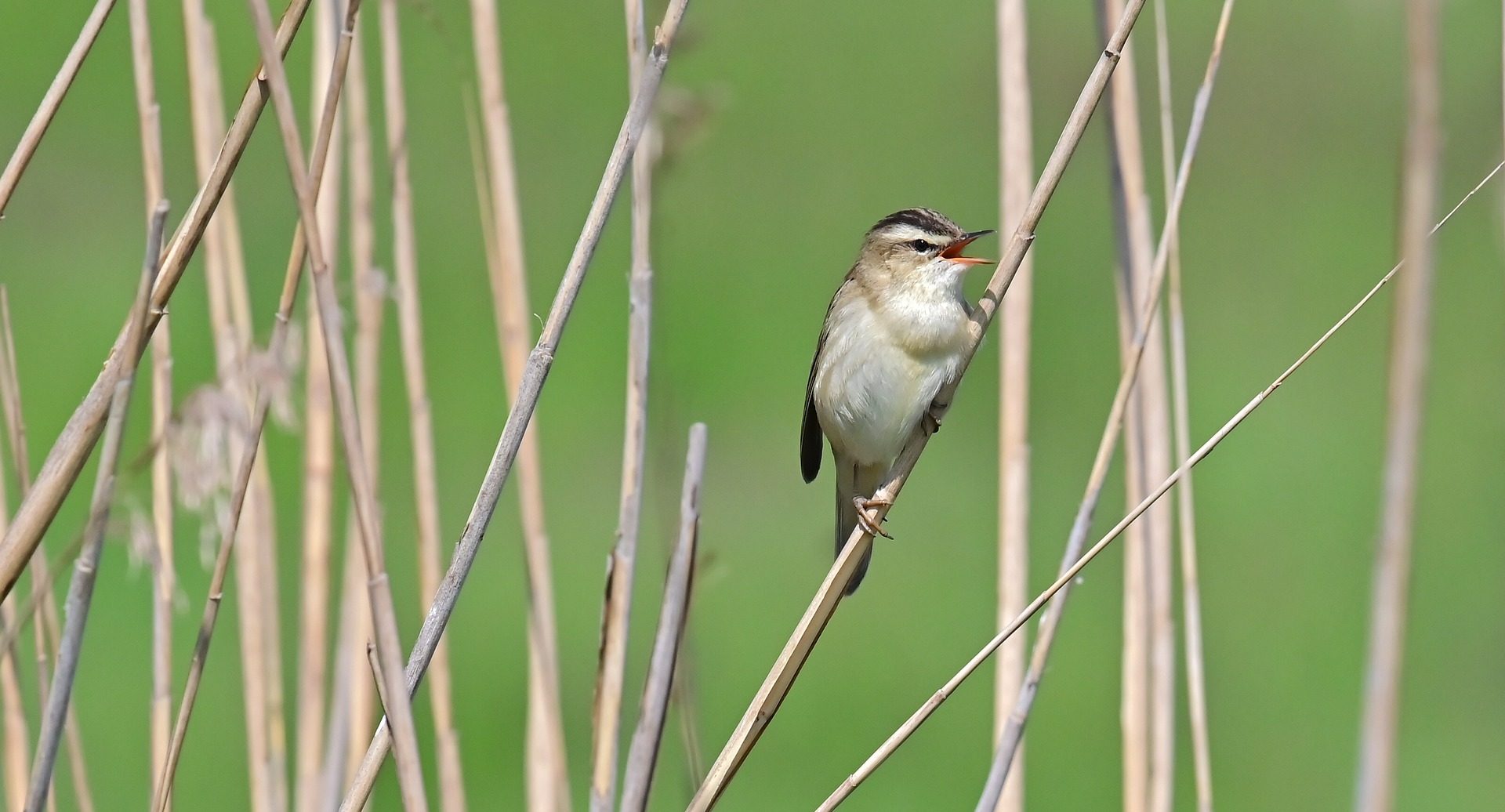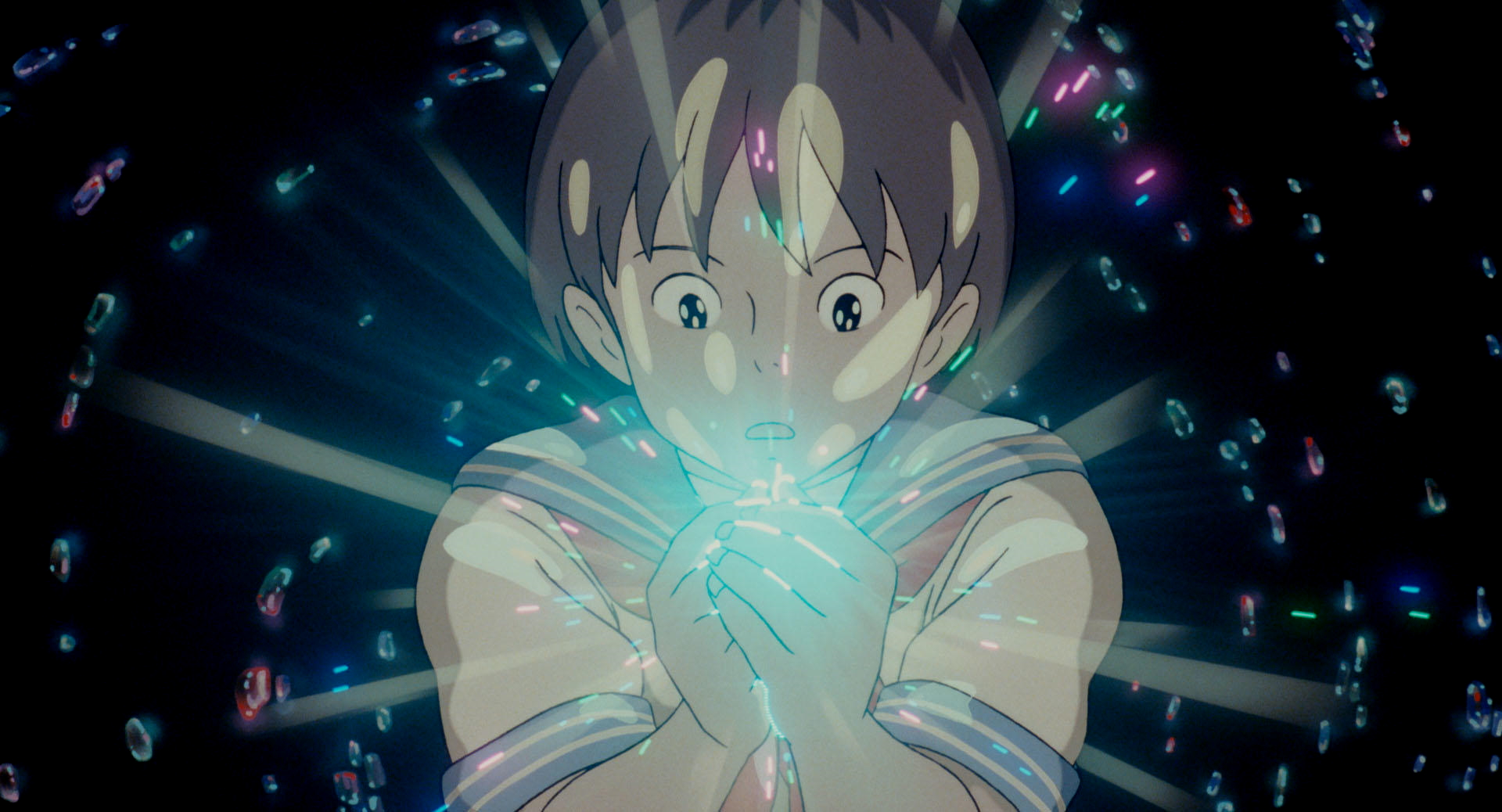Do ‘apple’ and ‘potato’ symbolize
the theme of “Laputa : Castle in the Sky”?
Contents
◆ "Pomme" and "Uncle Pomme"
I realized something about Laputa : Castle in the Sky after I started studying French.
In Laputa, there is a scene in which Sheeta, pursued by both the air pirates and the army, and Pazu, who helps her, descend into an old mine shaft. They walk down the tunnel by the light of a small lamp and then sit down to eat bread, fried eggs, and apples from Pazu’s bag. Pazu heard about Sheeta’s hometown and how Sheeta had been kidnapped from there by the dark glasses as they ate. Just as they were biting into apples for dessert and Pazu was throwing the core of the apple behind him, he felt someone approaching. It was “Uncle Pom,” an old acquaintance of Pazu’s.
From Laputa: Castle in the Sky
© 1986 Studio Ghibli
Actually, Apple is “pomme” in French.
In other words, right after Pazu and Sheeta ate the “pomme,” “Uncle Pomme” came out.
Perhaps this is not a coincidence, but rather a deliberate move on Director Miyazaki’s part. However, this is just a play on words, and it doesn’t seem to have any special meaning as a direction.
A few years have passed since I noticed the above, and one day, I watched “Laputa” again and noticed something.
Pazu and Sheeta are going to work with the Dora family, and they board the Tiger Moth. There, Sheeta is assigned to prepare five meals a day. As she works hard at cooking, Dora’s sons and other crew members are drawn to her as she changes into Dora’s clothes and gathers in the kitchen. At that moment, one of them is peeling potatoes. The stew-like dish that Sheeta is cooking in a pot also appears to have ingredients that look like potatoes.
From Laputa: Castle in the Sky
© 1986 Studio Ghibli
Potato are French for “pomme de terre,” which literally translates to “apple of the earth” or “apple of the soil.” So, in Laputa, the apple is eaten underground, and the “apple of the earth” is eaten in the sky. The meanings of each French name are in opposite positions.
This is not a coincidence either. On the contrary, it seems that Miyazaki was trying to symbolize the theme of his work. What seemed like a mere play on words when “Uncle Pom” appeared right after eating “pomme” became so when I thought of it together with “pomme de terre.”
◆ 'Apple' and 'Potato' The Upside Down World
So how do “apple” and “potato” symbolize the theme of the work? As I have already mentioned, there is a hint that they are “opposite” to each other. It probably means that “things that should be under the ground are above ground” and “things that should be above ground are in the sky,” or “things that should be in the sky are under the ground.” In other words, the world of this work is a world where things that should be “below” are “above,” and things that should be “above” are “below.” And it seems to be symbolized the scenes where “pomme” is eaten underground and “pomme de terre” is eaten in the sky.
Something that should be in the ground can explain that humans have dug up and used up all the resources in the ground and are now depleting them. In the world of Laputa, we are shown that humans have been digging underground for minerals and that the resources are already depleted, and the miners’ jobs are in a slump. And above the ground, there is a lot of metal machinery. The metal, of course, was originally just a mineral that was lying dormant underground.
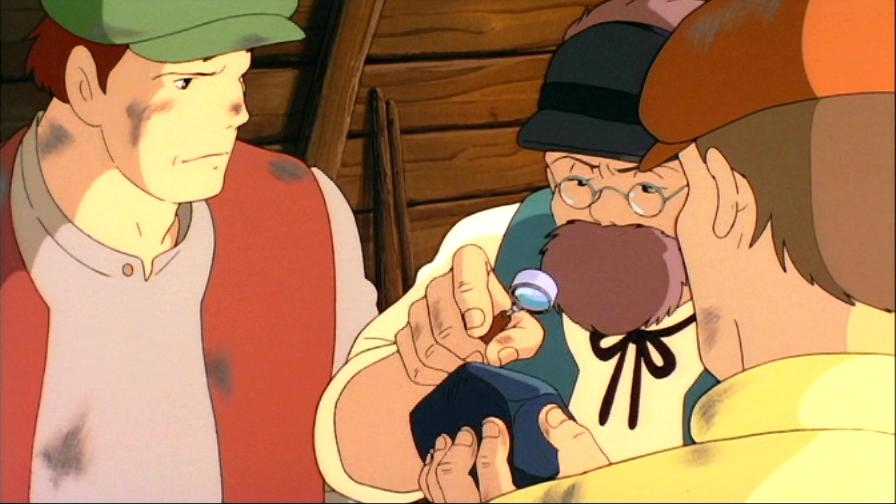
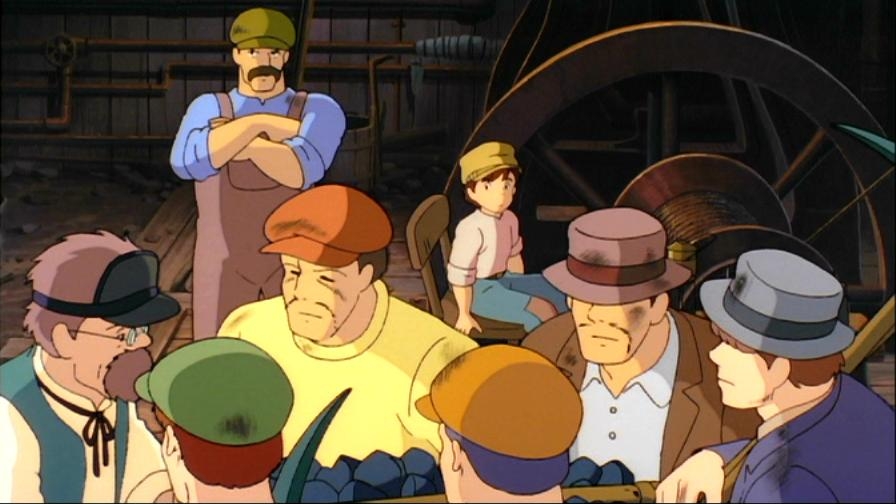
From Laputa: Castle in the Sky
© 1986 Studio Ghibli
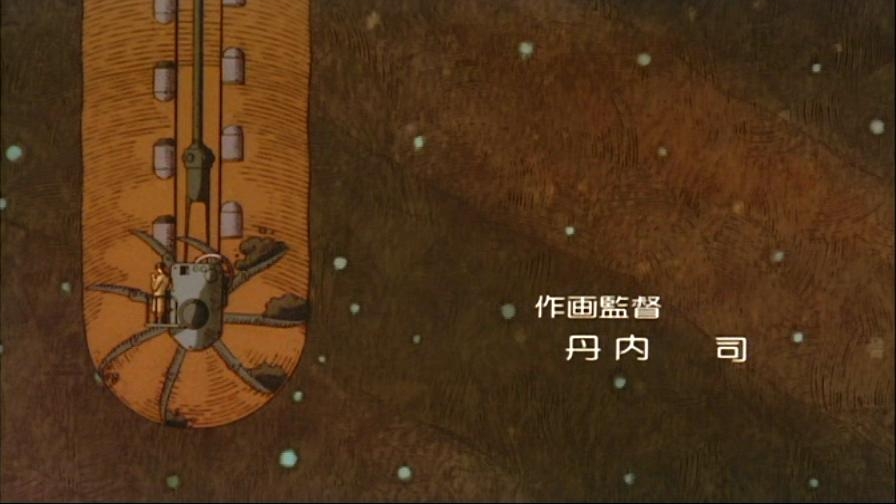

From Laputa: Castle in the Sky
© 1986 Studio Ghibli
At the beginning of the film, the rise and fall of the Laputans are told in pictures, and again, before they leap into the air, they are first shown digging underground. Especially in this series of scenes, the way humans keep digging for underground resources and processing them gives a grotesque impression. The cut where they keep digging deeper and deeper into the ground seems to depict the endless greed of human beings. In other words, “what should be underground” maybe “minerals” in this case.
So if there is a message that what should be on the ground is in the sky, what is it?
In the end, it is the fate of the Laputans, as indicated by the content of the song that Sheeta sings on the Laputan throne. In other words, humans cannot live apart from the earth. The Laputans turned the minerals they dug out of the ground into metal, and with their advanced technology, they succeeded in making their “land” float in the air. And according to Muska, they once ruled the entire earth. But in the end, it did not work. Sheeta says that it was only through the grand “experiment” of Laputa that we came to understand the obvious fact that humans cannot live apart from the earth.
In other words, the “things that should be on earth” are probably humans. The Laputans have returned to the earth, but their castle, Laputa, is still in the air. And because it is there, ambitious people like Muska try to use it again. If that is the case, then it is unnatural for Laputa to remain in the air.
Even though Sheeta, like Muska, is of Laputa’s royal blood, she does not join Muska’s ambition but instead casts a spell of destruction. Although this does not bring Laputa back to earth, it does make it forever inaccessible to humans.
◆ Symbolism of the Apple Science and Religion
Let’s think about the symbolism of the apple. The apple is famous for being the fruit that inspired Newton’s insight into the law of universal gravitation. In other words, the apple is a metaphor for science, especially material science. When I think about it, many things in the world of Laputa would not be possible without defying the law of gravity. Goliath and other “ships” have a few propellers, but they are floating in the air even when they are stationary. I have no idea how they are floating. I wonder if it is filled with buoyant gas. Laputa, on the other hand, floats in the air thanks to a huge levitation stone. I wonder if the levitation stones have the effect of nullifying the law of gravity.
Apple is also a religious motif. In the Genesis of the Old Testament, the forbidden fruit eaten by Adam and Eve is often imagined as an apple. The two are expelled from paradise because they ate the forbidden fruit. Incidentally, the Latin word for apple is “malus.” This is strangely similar to “valus,” the spell of destruction in Laputa. The similarity may not be a coincidence. When a pair of men and women, Pazu and Sheeta, chant the forbidden spell “valus,” the giant levitation stone surrounded by tree roots looks like a fruit. In other words, it could be compared to an apple. Just as Adam and Eve were expelled from paradise when they ate the forbidden fruit called “malus” (apple), the paradise of Laputa collapsed when Pazu and Sheeta cast the forbidden spell called “valus.”
When Muska shows the power of the terrifying weapon on Laputa by releasing it into the sea, he says that this is the “fire of heaven that destroyed Sodom and Gomorrah as described in the Old Testament.” Those mentioned above, “valus,” and this line of Muska’s show that the worldview of the Old Testament has a strong influence on this film in its way.
By focusing on the French names of the respective fruits and vegetables, apple = “pomme” and potato = “pomme de terre,” the above discussion was possible.
I conclude this discussion.
2021 4.15
◯The still images used in the article are those provided by the Ghibli official website and some captured from DVD for quotation.
Laputa: Castle in the Sky | STUDIO GHIBLI
※The content, text and images are prohibited to reproduce, quote or use in any way other than for correct quotation.
Other Posts
